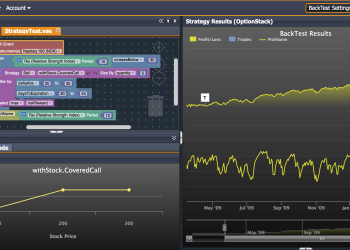The web development process is now simplified more than ever for web developers, thanks to the numerous frameworks available in the market. Frameworks boost flexibility and reduce the time to market. Without web development frameworks, the entire software development process would have been a nightmare for software engineers. It is because the developers then would have to create business logic, databases, security options and several other things from scratch.
Frameworks provide software developers with all required functionalities and tools and also dictates rules that are essential to build a high-performing website. The web framework enables the establishment of website architecture, APIs, applications and other solutions. That said, it assists the developers in building the skeleton of your project rapidly, and you can extend it further based on your specific requirements.
When it comes to web development frameworks, a vast choice is available for you to choose from. Let us discuss the top 10 frameworks in detail for you to make an informed choice. Visit:- https://stormotion.io/meditation-app-development/
● Django: Django is a reliable open-source backend framework. The framework is written in Python, and it allows rapid development of web applications and incredible scalability. Django ensures that the applications developed are completely safe, since security is the top-most priority of web applications.
● Express: Express is the best backend framework available today. It is very popular among all large enterprises, and this feature of the framework is explained by the minimalist feel and flexibility of the platform. Moreover, for the Node.js environment Express is the open-source framework and Node.js has a huge demand in the market today. Javascript is used to write Express and it provides features to the web applications, mobile solutions and APIs.
● Laravel: Laravel is another open-source backend framework that is worth paying attention to. PHP, a very popular programming language, is employed to write this framework and it is based on the MVC model. This framework employs a simple syntax and several packages which expand out of the box API support. However, as far as performance is concerned Laravel is behind Express and Django.
● Ruby on Rails: Ruby on Rails is another open-source backend framework used to develop web applications. Written in the programming language Ruby, the framework is based on the MVC architectural pattern. Being on the web development spectrum for over 15 years now, it is still very popular. The framework provides everything needed to establish high-speed and robust solutions.
● Spring: Spring is another open-source backend web application development framework widely used to develop powerful enterprise-level applications. The framework is extremely lightweight in terms of size and functionality. Since Java is used to write Spring, the framework is not going to lose traction anytime soon. The framework is backed by a large community that strives to consistently enhance it further.
● Angular: Let us now talk about front-end open-source frameworks, and Angular is one of the most common among web developers. It is one of the best platforms used to develop mobile apps, web apps, native desktop development. The framework was earlier known as AngularJS, but then Google rewrote it from scratch in Typescript, and after that it is known as Angular. Angular enables the development of cross-platform solutions that have high performance and speed.
● Ember: Ember is another open-source framework that is worth paying attention to. It enables the development of modern user interfaces, for applications of all kinds that include desktop and mobile apps that run smoothly on all devices. Testing program is a significant feature of Ember that is employed for every entity by default.
● Vue: It is a young, open-source frontend framework that is based on Javascript. It is one of the most promising tools that enables the development of user interfaces. The framework is very lightweight and is hence the perfect fit for single-page apps and dynamic projects. It features an adaptable architecture that is highly flexible and can be effortlessly integrated with third-party solutions.
● jQuery: jQuery is another trending Javascript library used to build user interfaces. Developers like using this framework because of its cross-platform compatibility and simplicity. jQuery has simple and clean syntax that facilitates DOM element interactions with web pages. The library is lightweight and hence, pleasant to work with.
● React: Practically, React is not a framework but an open-source frontend Javascript library. It is comparable to other frameworks and also serves as an excellent alternative to a few of them. React helps to build rich user interfaces and establish custom components. It allows the development of mobile apps and is easy to use, flexible and SEO-friendly.
Conclusion
With overwhelming options of web application development framework available in the market, picking the right framework is a tricky and complex task. Why do web developers rely on frameworks? It is because frameworks can simplify the establishment and support of web projects. Helpful contributions are made by the members of the community on GitHub repositories. We have listed only a few frameworks available, you may find several other frameworks that suit the specific needs of your project and company.
Author Bio: I’m currently working as Android App Developer with TheAppsmiths. I have a great passion for building world-class products as I loves technology. In the last couple of years, I have worked with big and small mobile app development company in India. I have learned new technologies as well as mentoring and helping others to get started in their programming career. I have a keen interest in outsourcing mobile app development, IPAD Development, Game development, etc.




















